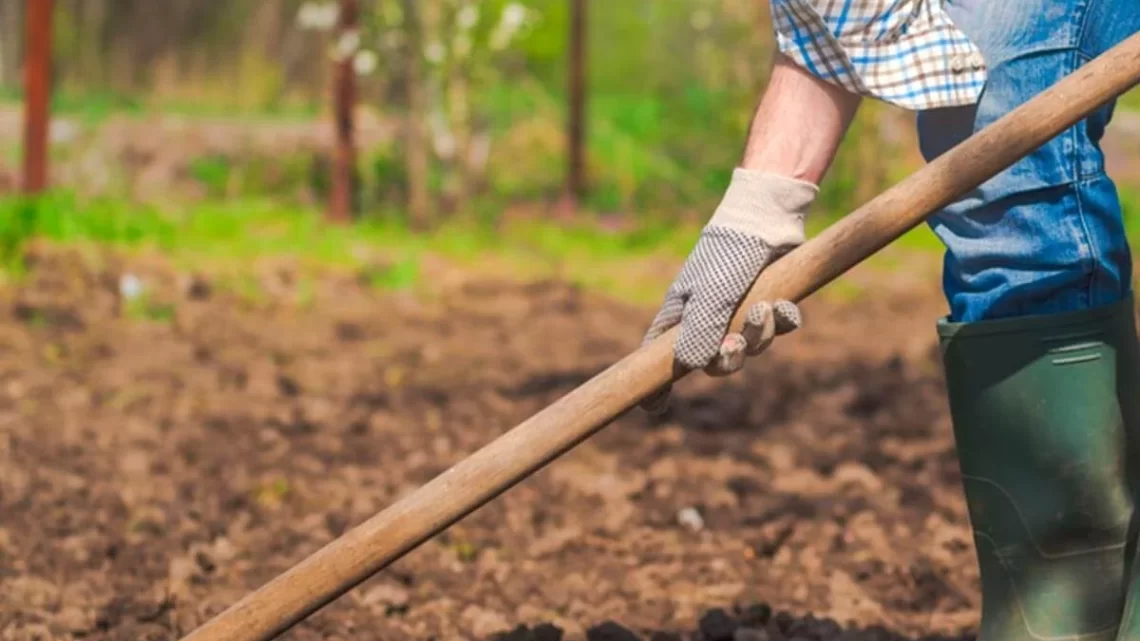Choosing the Best Soil For Vegetable Garden
November 29, 2022Choosing the best soil for your vegetable garden is essential to ensuring healthy and nutritious plants. Before planting, make sure to evaluate the soil’s pH level, texture, and drainage. You should also consider the amount of nitrogen and phosphorus in the soil. Then, you’ll need to add organic matter to replenish the nutrients and balance the pH.
Clay
Having clay soil isn’t a bad thing, but it can be tough to get the most out of it. Luckily, there are some things you can do to make the most of it, from aeration to adding compost.
Aeration can improve the quality of your clay soil by letting more oxygen into the mix. This will make it easier for plants to get the nutrients they need. You can also add compost and manure to the mix to help improve its quality.
Mulching is a great way to protect the soil from moisture loss. It also helps to keep weeds at bay. But, you should make sure to keep the mulch out of the plant stems to avoid rotting and mold.
A thick layer of mulch can also aid in improving the structure of your clay soil. The microorganisms that live in the soil will be able to break down the material and provide it with much-needed nutrients.
Sand
Choosing the best soil for your vegetable garden is a critical factor for healthy growth. It can be difficult to determine what type of soil you need, but by taking the time to test the soil you have and adding the right fertilizers, you can create a soil that is perfect for your vegetable garden.
There are several soil tests that you can perform at home to help you determine what type of soil your vegetable garden needs. You can purchase a soil test kit that will give you information about the pH and other key elements of the soil. These kits are inexpensive and easy to use. You can also find a professional to perform the test for you.
The best soil for vegetable gardening is a combination of organic matter and good drainage. Organic material can be obtained from manure, mulch, compost, or other sources. These materials help to soften the soil and improve its structure. They also act as a barrier to weed seeds. They also contain nutrients that will help to stabilize the pH.
Perfect loam
Several crops and plants grow well in loam soil. It has high water retention and nutrient holding capacity, which is ideal for growing vegetables and other plants.
Loam is a soil that is comprised of different sizes of mineral particles. It is made up of sand, silt, and clay. It also contains humus, which is decomposed vegetable or animal matter. It provides a good medium for bacteria to thrive, improves soil quality, and releases minerals.
A good loam is made of forty percent silt, twenty percent sand, and ten percent clay. It is the most perfect soil because it offers adequate moisture, adequate aeration, good drainage, and decent nutrient retention.
Loam soil is also easy to work with. It can be prepared by digging and adding organic material to the soil surface. It is also possible to buy loam soil at a garden center. It is a soil that is commonly used in vegetable gardens.
Vermiculite
Using vermiculite in your garden is a great way to add moisture to the soil and keep it from drying out. Using vermiculite in your garden also helps to protect your plants from bacterial and fungal diseases.
When using vermiculite in your garden, make sure to use the right grade. The optimum grade for growing plants is horticultural vermiculite. This grade is ideal for seedlings and seed starting. The medium grade is also good for growing plants because it has good aeration and moisture retention.
It is important to remember that vermiculite has a neutral pH and will not affect your plants’ ability to absorb minerals from the soil. It is best used in combination with other growing mediums.
When using vermiculite in gardening, it is best to keep it out of the reach of pets and children. It may also be a good idea to wear a face mask when mixing vermiculite. This can help prevent exposure to a cloud of dust.
Mulch
Having the best soil for your vegetable garden is vital to the health and growth of your plants. Vegetables require fertile soil with an ideal pH level and plenty of nitrogen. The best soil for vegetables should also provide plenty of moisture to support plant growth.
For the best soil for vegetable garden, you should look for a mix of various organic matter sources. You can use grass clippings, compost, or even autumn leaves. These organic materials will not only help you keep your soil moist, but also help protect your garden from extreme weather.
One of the best ways to protect your vegetable garden is to apply mulch. Mulching provides insulation for the soil, and prevents weeds from taking hold. Mulch also helps prevent water runoff.





